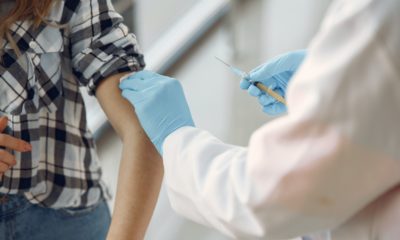Biotech
The German Research Foundation calls for new genetic engineering laws
German scientists are calling for an amendment of European genetic engineering law. Their aim is to completely redesign it in the long term. The legal classification of “genetically modified organisms” (GMOs) is not acceptable because genome-edited plants are considered GMOs if there is no foreign genetic information. So, a completely new legal framework is needed.

Scientists see great opportunities for solving food poverty by leveraging genetic engineering. Current case law, however, hinders research in Europe. The German Academy of Sciences Leopoldina, the Union of the Academies of Sciences and Humanities, an association of the eight larger German Academies of Sciences and Humanities and the German Research Foundation (DFG) have issued joint recommendations calling for an amendment of European genetic engineering law.
Get the latest biotechnology news at your fingertips. Discover what is new in biotech research, finance, business, and more with Born2Invest. Our companion app includes news updates of finance headlines from fin-tech to investing and cannabis.
The general legal classification as “genetically modified organisms” (GMOs) is considered unacceptable. This primarily procedural regulatory approach is difficult to rationally justify. It doesn’t take into account the type of genetic modification presence in the genome-edited organism.
The scientists have made recommendations on how European genetic engineering law can be amended in the short term and completely redesigned in the long term. Thus, as a short-term measure, the definition of “genetically modified organisms” should be revised so that genome edited plants are not considered GMOs if they do not contain foreign genetic information.
According to the organizations, this would then be analogous to plants modified with conventional breeding methods. Similarly, it should not be a genetically modified organism if there is a combination of genetic information that could also arise naturally or with conventional breeding methods.
In the long term, however, only a completely new legal framework would be consistent, the opinion states. In assessing risks to humans and the environment, this should not be based on the methods by which new varieties are produced, but on their novel characteristics.
In their recommendations, the Academies of Science and the DFG also advocate facilitating outdoor research. This is very important for research, for example in order to better understand the genetic basis of important properties such as salt, drought and heat tolerance. The opinion points out that further initiatives need to be taken to inform consumers about different breeding techniques and their products. On this basis and supported by a uniform product labeling system, people should be able to make informed purchasing decisions.
Contribution to sustainable agriculture
The Academies of Science and the DFG pointed out that genome edited plant varieties can contribute to solving resource problems and to sustainable agriculture. The European Court of Justice ruled in July 2018 that all organisms modified by genomic editing techniques such as CRISPR-Cas are covered by the GMO legislation. According to scientists, this makes it difficult to research, develop and grow the improved crops that are urgently needed for productive, climate-adapted and more sustainable agriculture.
__
(Featured image by Hans Reniers via Unsplash)
DISCLAIMER: This article was written by a third party contributor and does not reflect the opinion of Born2Invest, its management, staff or its associates. Please review our disclaimer for more information.
This article may include forward-looking statements. These forward-looking statements generally are identified by the words “believe,” “project,” “estimate,” “become,” “plan,” “will,” and similar expressions. These forward-looking statements involve known and unknown risks as well as uncertainties, including those discussed in the following cautionary statements and elsewhere in this article and on this site. Although the Company may believe that its expectations are based on reasonable assumptions, the actual results that the Company may achieve may differ materially from any forward-looking statements, which reflect the opinions of the management of the Company only as of the date hereof. Additionally, please make sure to read these important disclosures.
First published in Forschung & Lehre, a third-party contributor translated and adapted the article from the original. In case of discrepancy, the original will prevail.
Although we made reasonable efforts to provide accurate translations, some parts may be incorrect. Born2Invest assumes no responsibility for errors, omissions or ambiguities in the translations provided on this website. Any person or entity relying on translated content does so at their own risk. Born2Invest is not responsible for losses caused by such reliance on the accuracy or reliability of translated information. If you wish to report an error or inaccuracy in the translation, we encourage you to contact us.

-

 Fintech1 week ago
Fintech1 week agoFintower Secures €1.5M Seed Funding to Transform Financial Planning
-

 Impact Investing3 days ago
Impact Investing3 days agoBNP Paribas Delivers Record 2025 Results and Surpasses Sustainable Finance Targets
-

 Biotech1 week ago
Biotech1 week agoTwogee Biotech Advances Industrial Enzyme Solutions for Circular Production
-

 Crypto7 hours ago
Crypto7 hours agoUniswap and BlackRock Partner to Launch BUIDL in DeFi
























